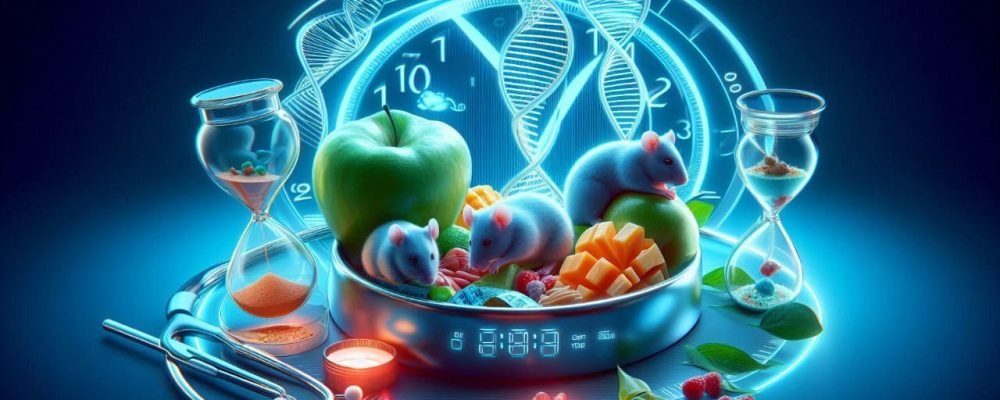Written and Reviewed by Team Pharmacally

Researchers from The Jackson Laboratory have released a study in Nature on October 9, 2024, which sheds new light on the connection between lifespan and calorie intake. In order to evaluate the effects of intermittent fasting (IF) and calorie restriction (CR) on longevity, the study used around 1,000 genetically varied female mice that were given different dietary regimens.
Study Design and Findings
The mice were divided into groups and assigned to one of five diets:
Ad libitum (AL): Mice had unrestricted access to food.
Caloric Restriction: Mice received 60% or 80% of their baseline caloric intake daily.
Intermittent Fasting: Mice underwent fasting periods of one or two consecutive days per week, with unrestricted eating on non-fasting days.
The mice on a 60% calorie restriction showed the greatest gain in average longevity, according to the results, living up to 34 months as opposed to 25 months in the ad libitum group. It’s interesting to note that lifespan varied significantly within each dietary group, indicating that variables other than nutrition are important for longevity.
Genetic Factors and Resilience
The study showed that lifespan is greatly influenced by genetic background, sometimes even more so than by dietary modifications. Resilience to nutritional stress is genetically programmed, as evidenced by the longer lifespan of mice who maintained their body weight and immunological function during calorie restriction. This result implies that the impact of dietary interventions on lifespan is significantly influenced by an individual’s genetic composition.
Implications for Human Health
Although calorie restriction has been linked to metabolic advantages, this study casts doubt on the idea that these metabolic modifications inevitably result in longer lifespan. The researchers discovered that blood glucose levels, body weight, and body fat percentage were not reliable indicators of longevity. Rather, characteristics associated with red blood cell activity and immune system health were more strongly associated with longer lifespan. These results suggest that human research that just looks at metabolic health may miss important variables that affect longevity.
Conclusion
The intricacy of the connection between nutrition, genetics, and lifespan is shown by this thorough investigation. It implies that although calorie restriction may be advantageous, individual genetic variations and resistance to dietary stress are important factors that determine longevity. Therefore, when examining dietary interventions aiming at prolonging lifespan, tailored techniques that take genetic background into account may be crucial.
References:
1. Dolgin E. Eating less can lead to a longer life: massive study in mice shows why. Nature. 2024 Oct 9. Doi: 10.1038/d41586-024-03277-6. Epub ahead of print. PMID: 39384926.
2. Study probes how eating less can extend lifespan, The Jackson Laboratory, published on 09 October 2024
3. Di Francesco, A., Deighan, A.G., Litichevskiy, L. et al. Dietary restriction impacts health and lifespan of genetically diverse mice. Nature 634, 684–692 (2024). https://doi.org/10.1038/s41586-024-08026-3
4. Eating Less Is More Effective Than Intermittent Fasting For A Long Life: Study, Forbes, 10 November 2024
